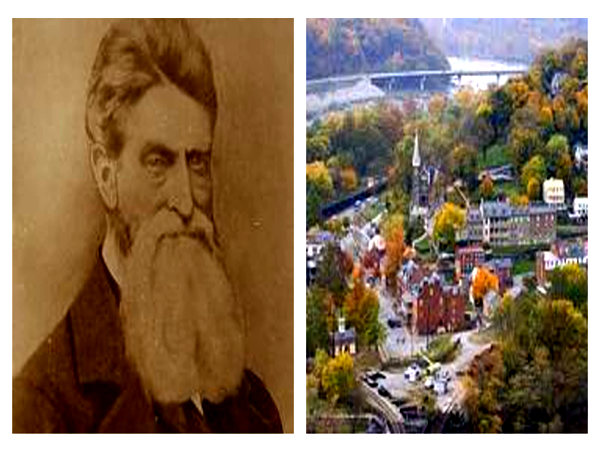John Brown’s raid on Harpers Ferry in 1859 is a pivotal moment in American history, often debated and reinterpreted. Dismissed by some as a fanatic’s folly, it was a defining act that pushed a nation teetering on the edge towards inevitable conflict.
A Nation Divided:
The United States in the mid-19th century was a house divided. The issue of slavery cast a long shadow, threatening to tear the nation apart. John Brown, a fervent abolitionist, saw the system as an unconscionable evil demanding radical action. He believed the federal government’s stance on slavery was morally bankrupt.
A Raid and its Aftermath:
Driven by his convictions, Brown led a daring raid on the federal arsenal at Harpers Ferry, Virginia (now West Virginia). His hope was to spark a slave uprising, arming enslaved people in the region and igniting a rebellion against the institution.
While the initial raid achieved some success, Brown’s band of 21 men, a mix of white and Black abolitionists, faced overwhelming resistance. Outnumbered and outgunned, they were eventually captured or killed.
A Martyr and a Turning Point:
John Brown’s raid, though a military failure, had a profound impact on the nation. The South saw him as a dangerous extremist, a threat to their way of life. For many in the North, he became a martyr, a symbol of the moral imperative to end slavery. His execution only heightened the growing animosity between the two regions.
Beyond the Battlefield:
John Brown’s legacy extends beyond the battlefield. His actions exposed the deep chasm separating the North and South. It became clear that compromise on the issue of slavery was no longer possible. The nation was on a collision course, destined for war.
A Family Divided:
The story of Harpers Ferry is not just about national conflict. It’s a microcosm of the human cost of the Civil War. The author’s own family history reflects this, with brothers fighting on opposite sides. This personal anecdote underscores the profound impact of the conflict on American families and communities.
The Ghosts of Harpers Ferry:
The legacy of Harpers Ferry lives on, not only in history books but also in local folklore. Stories of John Brown’s ghost, along with other apparitions believed to be tied to the Civil War era, add an eerie dimension to this historic town.
Conclusion:
John Brown’s raid, while unsuccessful in its immediate goals, stands as a pivotal moment in American history. It forced a nation to confront its moral contradictions and ultimately served as a catalyst for the Civil War, the bloody conflict that finally led to the abolition of slavery. Brown’s raid may have been seen as a failure in its time, but its impact on the nation’s trajectory was undeniable.

